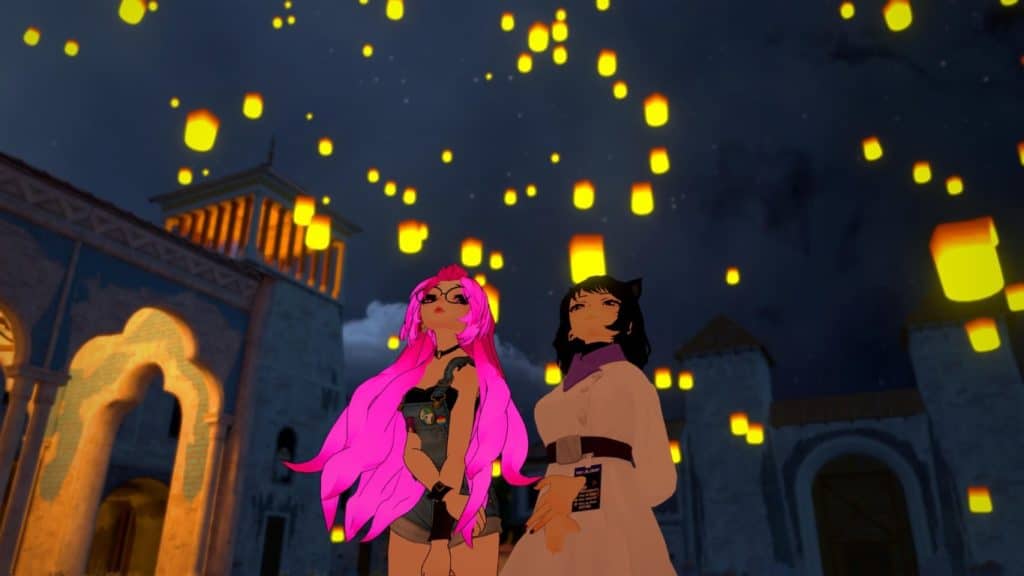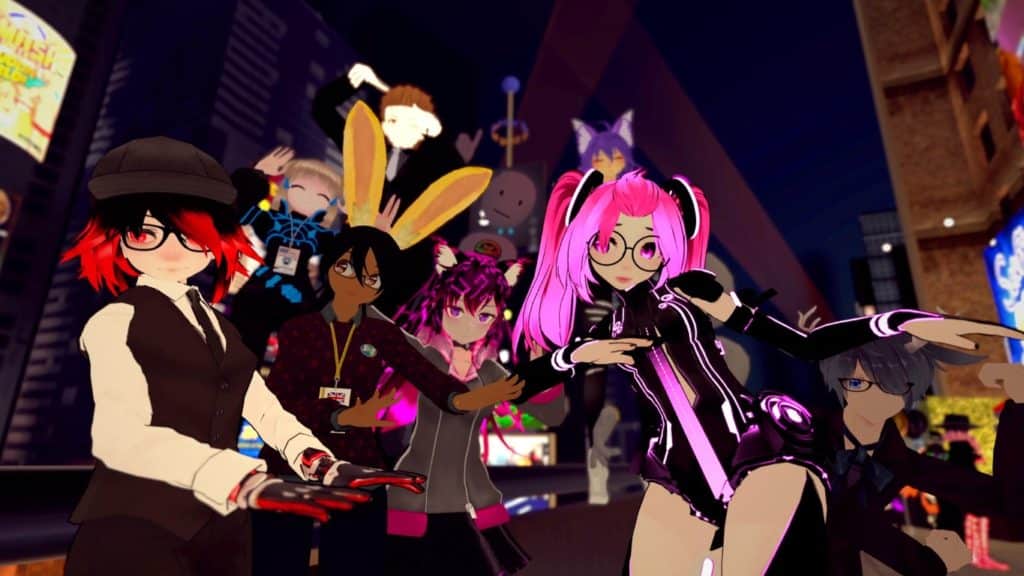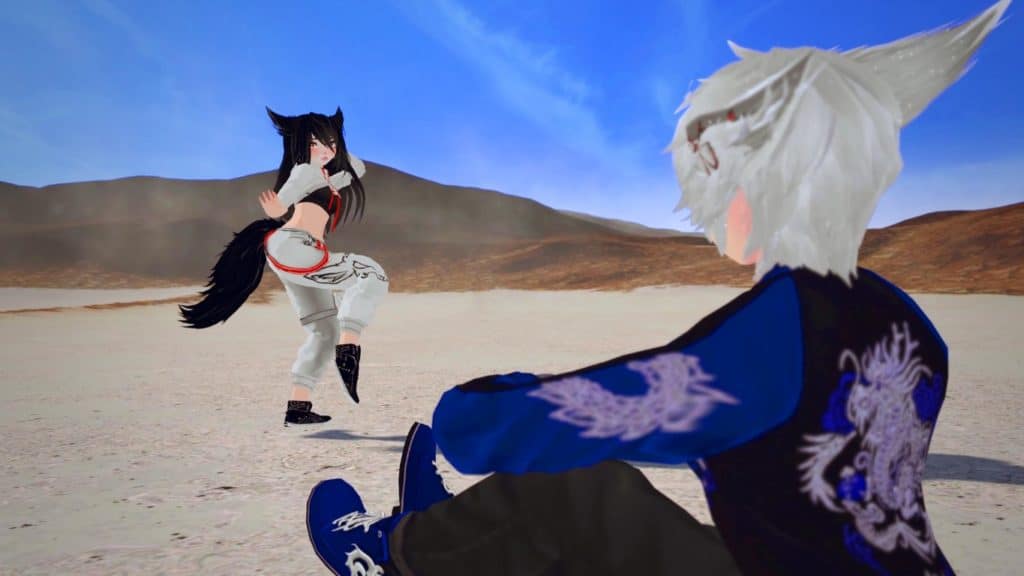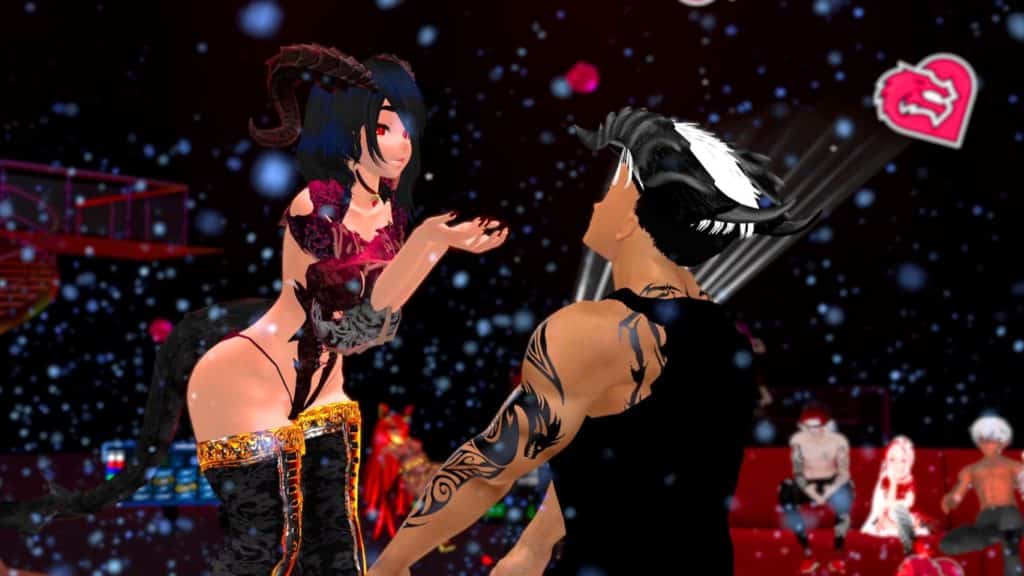Read also:
How to Watch FX Live Without CableHow To Watch AMC Without CableHow to Watch ABC Without CableHow to Watch Paramount Network Without CableThe director opens up about the challenges of filming a doc entirely inside virtual reality and advocating for safe, positive communities in that space.
It’s fitting, really, that this year’s Sundance Film Festival — one originally planned as a hybrid festival only to go fully online due to rising COVID numbers — was the venue by which Joe Hunting’s documentary We Met in Virtual Reality premiered. After all, it’s a slice-of-life doc created (and filmed) entirely online, capturing the lives, joys, and heartaches of an inviting cross-section of people who live much of their social lives on the virtual reality platform VRChat.
Conceived at the height of the pandemic in late 2020, the doc offers for comparative online natives (like, say, those of us who recently had to adjust to a life spent mostly online due to lockdowns) a glimpse at a kind of glitchy utopia, where the limitations of the flesh give way to endless possibility. We follow ASL instructors building warm, happy communities for Deaf users to learn sign language, and at least two couples maintaining and progressing their long-distance relationships entirely online. There’s a wedding and a funeral (one of the most tear-jerking sequences this year, as one subject says goodbye to a brother who died of suicide), a testament to VR’s wide-ranging possibilities as a conduit for human expression and experience.
Director Joe Hunting‘s endless curiosity about the space, which began pre-pandemic, is a huge part of We Met in Virtual Reality‘s success; he captures his subjects with an empathetic, humanistic lens, letting their big glitchy anime avatars and disembodied voices lend unexpected warmth to the digital bodies we see on screen. For The Spool, Hunting sat down to talk with us about his own relationship with VR, the logistical challenges of “filming” what he sees in a cinematic way, and why he chose to focus on the positive aspects of VR over the negative.
(Note: this interview was conducted a week before this week’s controversial announcement that VRChat would start implementing “anti-cheat” technology that banned all user-made mods.)

What was your first introduction to VR as a platform? Were you using it for your own personal use prior to this?
JH: I came into VR in 2018; my first experience in the space was as a participant myself. I was so fascinated by the creative aspects, all of the worlds that the users were building, the avatars, and the communities that were being formed. I remember in my very early days on VRChat, I went to this big musical festival that a friend was hosting. She’d created this massive world, and the scope of it impressed me so much. I found myself wandering with this big group of friends in this big music festival in a [virtual] desert. I’ll never forget that moment.
I immersed myself in different communities, starting to make films and interviewing different people about the emotional aspects of VRChat and how the platform was affecting the way we see each other. It led me down this path of curiosity to make this film, especially since the pandemic.
And the pandemic is a major component of it because suddenly, we were all living online in various forms, whether in VR or just over Zoom. This was where we negotiated a lot of our interpersonal social relations. How did you want to build this doc to respond to how our social lives had changed during COVID?
JH: When the lockdown first came in early 2020, I was working on another project, a documentary series called “Virtually Speaking.” VRChat became my full-time job during that production, building relationships with colleagues and friends in the space and going to events. That experience shaped my understanding and build this passion, this burning inspiration to want to tell that story and to celebrate this moment. I wanted to seal this moment in history as a time capsule and share the value of this technology during the pandemic. And because it was something we were all struggling with, this was a relatable context to bring people into this world and understand and appreciate it.

Were your subjects people you knew before? Or did you seek out new subjects for the documentary?
JH: It’s a mix of both. The first people I met, and who are featured in We Met in Virtual Reality, are Jenny and Ray, the American Sign Language teachers in the Helping Hands community. I met them while making “Virtually Speaking,” and their teaching attitude was inspiring. I knew immediately there was a story there, and kind voices to celebrate. We started filming with them right away.
From there, I immersed myself in about eight different VR communities. I met DustBunny at a VR dance battle; she was doing this hip-hop, belly dance infusion, which was amazing. I was so in awe of it, and I spoke to her. She introduced me to classes that she runs, her partner Toaster, what they were going through in their relationship due to COVID, and using VR to connect and be together.
It spoke so much truth, so I looked for similar stories. I met DragonHeart and IsYourBoi at their dance club, going through a very similar time in their relationship, but in a very different context. There were such strong voices in all of their stories, once that audiences outside of VR could also relate to. That was the ultimate criteria for making final selection on the stories to follow: what audiences can connect to, and how many people can see the value of their stories.
I’m especially interested in how you tell those stories because you’re applying verite filmmaking craft to a virtual space with its own technological quirks. Not just with the equipment (I know you used VRCLens to capture video data), but with filmmaking technique, what were the challenges to capturing your footage?
JH: There’s a whole different workflow to filming inside of VR, you know? I was training myself with this new camera, understanding how that works, and where the buttons were on the console. I had to build muscle memory where I could easily flick to the necessary menu to change my aperture, focal length, etc.
Sound was one of the biggest issues, technically, as my head was the microphone. I had to ensure I was always maintaining eye contact, and capturing dialogue in both ears was something I had to train myself to do.
In VRChat, do you have to maintain eye contact to get the audio?
JH: Yes; in VRChat, your audio is specialized, so if someone is talking to me over here [gestures to his right], I will get it through my left ear. If someone’s talking to me on my left, I’ll get it there; behind, from behind. When recording, I’m recording that VRChat audio and my PC monitor to capture the visuals. So if I’m standing in one place and DustBunny’s talking to me in one ear, I’ll have to convert that audio to stereo in post. If someone talks to me from a diagonal perspective, that’s an issue and it’ll sound slightly off.
Maintaining that and understanding where my head was positioned was difficult. So I often directed myself, and the subjects as well, from a technical level.
There are other unique aspects to directing inside of VR, you know? Gaining trust was fundamentally the most important part of the interview process; I was collaborating with subjects and being transparent about what the film was about, how they’d be represented, and how they’d look on screen. It’s harder to engage with a filmmaker when he’s just an avatar holding a camera instead of a real human who can show you the footage and go through the scripts. Being anonymous on an equal level was equally important to me.

The world of VRChat feels so unique, especially in the forms of expression people have and the variety of avatars and worlds they create. I’m curious what you thought about the glitching of bodies from a cinematic perspective, with characters’ hair flapping around inorganically or riding off on invisible motorcycles. What did you want audiences to take away from those imperfections?
JH: I’m glad you raised this. This is one of my favorite things to discuss. It’s all about embracing imperfection, and VRChat as a platform is an imperfect landscape. Things break all the time, and people do ridiculous things. The hilarity is key to the enjoyment of the film. In my opinion, it brings humor, life and authenticity to the space, which could have been avoided if I was to just polish the entire film.
One of my favorite moments in the documentary, which always gets people emotional but in a funny way, is the way IsYourBoi’s boobs flap as she walks down the aisle in her virtual wedding. It’s hilarious but also emotional and warm and fantastic. That moment is exactly what I was trying to achieve; just letting VRChat be itself.
The fluidity of the avatars dovetails into the way VRChat, and your film in particular, feels like a freeing space to explore trans bodies. Yes, some of your subjects are non-binary and use VRChat to explicitly explore trans identities and the feeling of existing in a different body. But the world itself feels overall very trans, the idea of being something you’re not — queering your own presentation to the world.
JH: It’s actually been a really important conversation, talking about VRChat from the context of LGBTQ+ awareness. The only concrete, direct conversation in We Met in Virtual Reality about that community is with Dylan, as they discuss being non-binary and using avatars to experiment and express themselves in different ways. But there’s a queer context throughout the documentary: it feels like we’re in an open, safe space to experiment and play. To myself and others, that’s what VR Chat has always been.
I intend for this film to have that feeling throughout: it is a safe space. Scout, who’s in that conversation with Dylan, says that we are responsible for raising awareness of VR positively. The community has a responsibility to make it a progressive space. That’s so truthful to me, and it’s what I want the space to be.

The doc has such a universally positive vibe that I was curious whether there was any point in the process you considered showing the other side of online life — the bullying, the harassment, etc.? Other outside factors include the impending corporatization of these spaces by companies like Meta and the implications of disrupting such welcoming, holistic spaces.
JH: Yes, absolutely. I was constantly having that conversation with myself and the subjects as well. I certainly know all of the negative aspects and have come into the full force of harassment and negative behavior in VRChat. In no way am I ignoring that. My intention with We Met in Virtual Reality was to show where we could be — how, if we are good and we come together, the space and the communities can create a lot of good.
We’ve already seen so many negative documentaries about the Internet, social media, and VR. VR, in general, is hit with so much negative stigma about how the space could affect us. I wanted to put a positive story out there to contrast it.
The film does hint at those moments from the other side. There’s a piece of dialogue with Virgo, the dance show host before we meet IsYourBoi, who says that if anyone is being inappropriate to you or harassing, please tell us, and we’ll sort it out. That hints at the other side that exists. But I hope people see the documentary and how we can use this technology positively. We all know the negative aspects, and we understand that. But we need to know the positives too.
We Met in Virtual Reality is currently streaming on HBO Max.